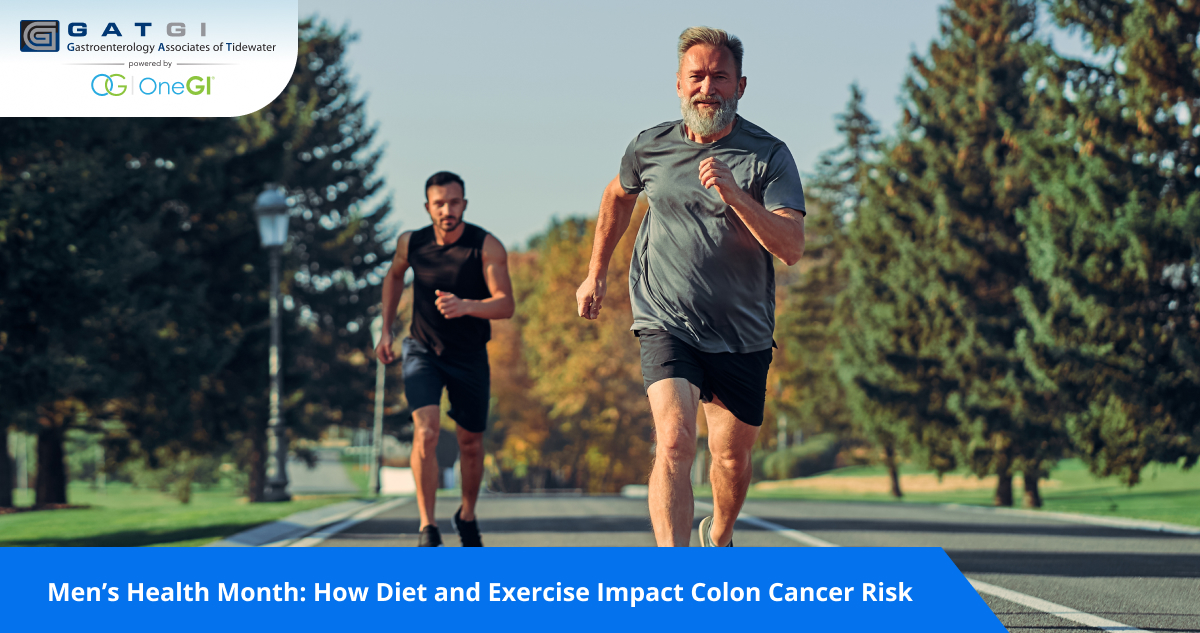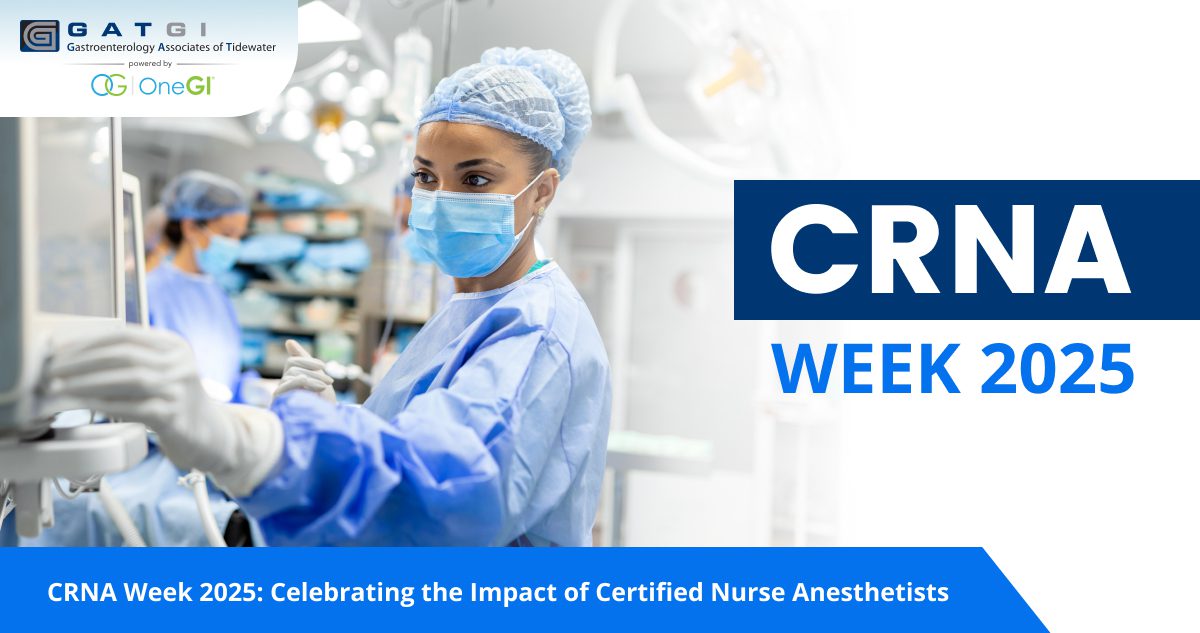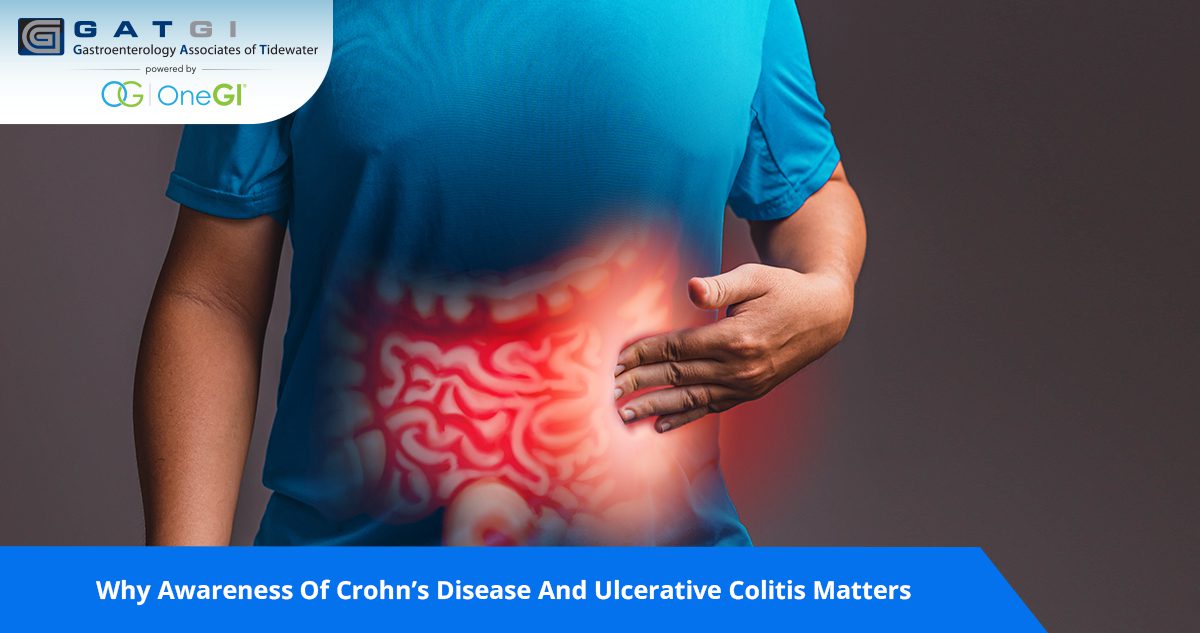Colorectal cancer is one of the most preventable diseases in men, yet it remains a leading cause of cancer-related deaths in the United States. Men’s Health Month provides an opportunity to raise awareness about the factors that influence colon cancer and encourage preventive action. Your diet, exercise habits, and overall lifestyle choices play a critical role in mitigating your risk.
Gastroenterology Associates of Tidewater bring decades of expertise in digestive health care. They focus on lifestyle changes, early detection, and screenings, including men’s health screenings, as key strategies for preventing colorectal cancer. This guide will delve into how diet, exercise, and regular screenings can help reduce your risk of colon cancer.
Understanding Colon Cancer
Colon cancer originates in the large intestine and is often linked to lifestyle and genetic factors. While anyone can develop colon cancer, men have a higher risk than women. Alarmingly, incidence among younger adults has been increasing steadily since the 1990s. Up to 18,000 individuals under 50 are expected to be diagnosed this year.
These rising rates among younger populations highlight the importance of adopting a healthy lifestyle and adhering to screening guidelines, starting early.
The Role of Diet in Colon Cancer Prevention
Diet is one of the most controllable factors influencing colon cancer. What you eat daily can either increase or reduce your risk.
Foods to Avoid
Certain foods are associated with a higher risk of colon cancer:
- Red meats and processed meats: Diets heavy in beef, pork, lamb, and processed meats like hot dogs and deli slices are linked to an increased risk of colorectal
- Foods high in saturated fats: These contribute to inflammation within the
- Sugary and highly processed foods: These often disrupt healthy gut bacteria, leading to prolonged inflammation.
Foods to Include
A balanced diet rich in plant-based whole foods is essential:
- Vegetables and fruits: High in fiber and packed with Aim for a mix of colorful options to gain diverse nutrients.
- Whole grains: Oats, quinoa, barley, and whole-grain bread contribute significantly to gut health and digestion.
- Legumes: Beans, lentils, chickpeas, and peas provide both fiber and
- Omega-3 fatty acids: Found in salmon, walnuts, and flaxseeds, these help to reduce
Additional Tips
- Meal-prep healthy lunches to avoid processed meals on the
- Opt for plant-based alternatives like black bean patties or
How Exercise Mitigates Colon Cancer Risk
Staying active is another powerful way to protect your health. Physical activity correlates directly with reduced cancer risk, especially for colon cancer.
Types of Exercises
- Cardiovascular activities: Brisk walking, running, cycling, or swimming three to five times weekly offers immense benefits.
- Strength training: Building muscle reduces body fat percentage and
- Functional exercises: Activities like yoga or Pilates enhance flexibility, improve gut health by activating muscles involved in digestion, and lower stress hormones.
Adults should aim for at least 150 minutes of moderate-intensity or 75 minutes of high-intensity exercise weekly.
Screening and Early Detection Save Lives
Regular health screenings are essential for men to maintain overall well-being and catch potential health issues early. Prostate and colon cancer screenings are especially important, as early detection greatly improves treatment success.
Since colon cancer can develop without noticeable symptoms, routine screenings are the best way to identify and treat it early, improving survival rates. Consult your healthcare provider to create a screening schedule tailored to your age, family history, and risk factors.
Recommended Guidelines
- For men at average risk, routine screenings should begin at age
- For those with a family history, screenings may need to start
Screening Methods
Consult with a board-certified gastroenterologist to determine the most appropriate colon screening method for your needs.
- Colonoscopy: The gold It examines the colon entirety for polyps or abnormalities and allows for removal during the procedure.
- Stool tests: Detect blood or specific biomarkers related to colorectal
- CT colonography: An imaging test for high-risk patients hesitant about invasive
At Gastroenterology Associates of Tidewater, scheduling your colonoscopy is simple with their Open Access Program. Qualified individuals can book the procedure without a referral or consultation.
Take Control of Your Health Today
Your colon health depends on the choices you make daily. Adopt a fiber-rich diet, incorporate regular exercise, and prioritize essential health checkups for men to stay proactive about your health. Men’s Health Month is the perfect time to commit to these changes.
Preventive healthcare is simple with the support of experienced professionals. Connect with Gastroenterology Associates of Tidewater to schedule your colonoscopy and get tailored recommendations by calling (757) 547-0798.
Our team provides comprehensive care through a variety of gastroenterology tests and procedures to ensure early detection and effective treatment of digestive health concerns.
Colon cancer is preventable—take the first step today by consulting a gastrologist in Chesapeake, Virginia.







